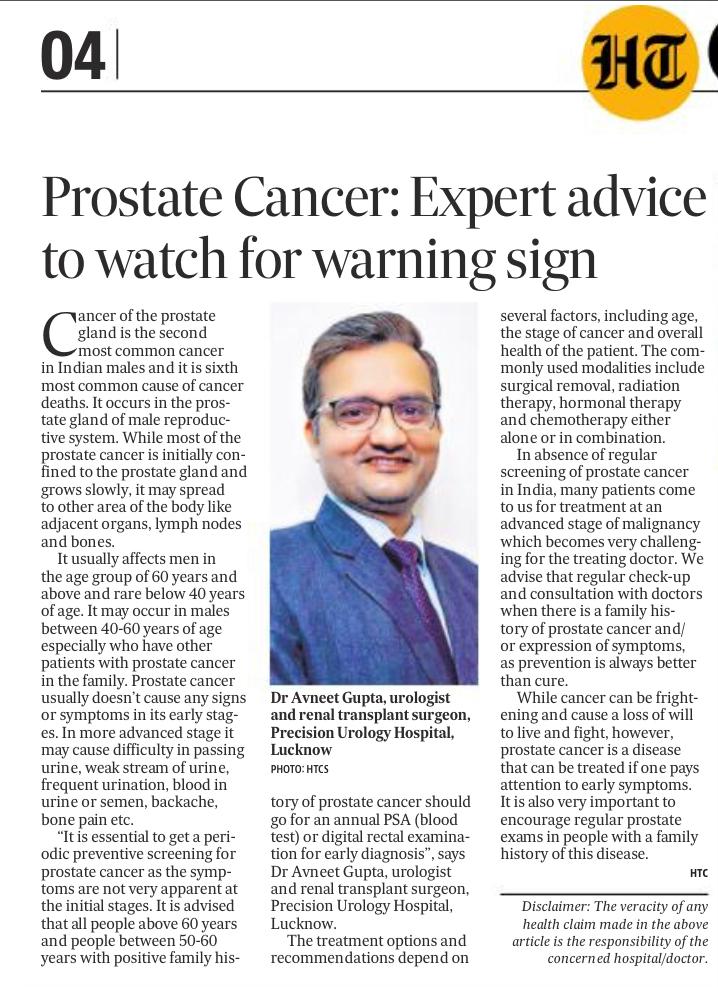
Cancer of the
prostate gland is the second most common Cancer in Indian males and it is
sixth most common cause of cancer deaths. It occurs in the prostate gland of
male reproductive system. While most of the prostate cancer is initially
confined to the prostate gland and grows slowly , it may spread to other area
of the body like adjacent organs, lymph nodes and bones.
It
usually affects men in the age group of 60 years and above and rare below 40
years of age. It may occur in males between 40-60 years of age especially who
have other patients withprostate cancer in the family. Prostate cancer usually
doesn't cause any signs or symptoms in its early stages. In more advanced stage
it may cause difficulty in passing urine, weak stream of urine, frequent
urination, blood in urine or semen, backache, bone pain etc.
"It
is essential to get a periodic preventive screening for prostate cancer as the
symptoms are not very apparent at the initial stages. It is advised that all
people above 60 years and people between 50-60 years with positive family
history of prostate cancer should go for an annual PSA (blood test) or digital
rectal examination for early diagnosis", says Dr Avneet Gupta, urologist
and renal transplant surgeon, Precision Urology Hospital, Lucknow.
The
treatment options and recommendations depend on several factors, including age,
the stage of cancer and overall health of the patient. The commonly used
modalities include surgical removal, radiation therapy, hormonal therapy and
chemotherapy either alone or in combination.
In
absence of regular screening of prostate cancer in India, many patients come to
us for treatment at an advanced stage of malignancy which becomes very
challenging for the treating doctor. We advise that regular check-up and
consultation with doctors when there is a family history of prostate
cancer and/ or expression of symptoms, as prevention is always better
than cure.
While
cancer can be frightening and cause a loss of will to live and fight, however,
prostate cancer is a disease that can be treated if one pays attention to early
symptoms. It is also very important to encourage regular prostate exams in
people with a family history of this disease.